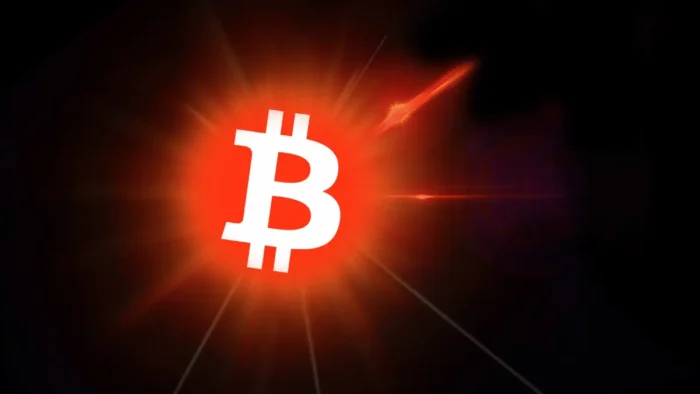It’s hard to know exactly what you’re getting into when you first buy ether, the cryptocurrency powering the Ethereum network.
Blockchain technology has been developing so much and has supported cryptocurrency to the level they both become the new normal these days.
You most likely aren’t as intrigued and surprised now as when you first heard about blockchain technology and cryptocurrency since it is one of the hottest financial topics worldwide. You hear about crypto on the news, and your friends most likely exchange opinions and share the latest info about the market’s fluctuations. All these might make you wonder if you could ever make some profit from buying and trading digital coins, or at least wonder how this technology will evolve over time and how common owning cryptocurrencies will be.
Approximately 59.1 million Americans held some form of cryptocurrency in 2021. And did you know global investors ponder the possibility virtual tokens will become the future global currency?
As surprising as this may sound, you should think about how money first appeared. Prehistoric humans exchanged services or animal skins for food, giving birth to the term shell money in parts of the world where people used seashells for trade. This kind of practice led to using gold and currencies. Now you can use your smartwatch or cellphone to pay from a distance..
If you, too, get goosebumps when you think about how bartering and money evolved, then it’s time you acknowledged some crypto must-knows, too.
Whether you begin trading now or in the future, you should be informed about the latest financial trends, know how Ethereum differentiates from Bitcoin (the two most popular digital currencies worldwide) and how to trade digital coins. We’ve got the most important aspects covered for you in the following lines.
Ethereum vs. Bitcoin
To decide what system and cryptocurrency is safer to buy and trade when there are so many available options nowadays, you should first grasp the differences among the most popular digital coins.
Ethereum (with its native token Ether or ETH) and Bitcoin (BTC) are the most traded cryptocurrencies. You must know that they’re two separate species, holding their own mechanisms.
Satoshi Nakamoto gave birth to the first virtual coin, Bitcoin, in 2009. It runs on a blockchain that tracks transactions distributed across plenty of computers. You’re not susceptible to having your BTC frauded because it requires you to solve a cryptographic puzzle. It’s a security token, unlike utility tokens like Golem, and you can store it in hardware and online or offline electronic wallets.
Six years after Bitcoin’s release, Vitalik Buterin created Ethereum – the blockchain network where you buy and trade Ether (ETH, or the platform’s native cryptocurrency).
Ethereum has grown substantially since its birth in 2015 and is best known for enhancing transaction speeds quicker than BTC and creating a smart contract. Ether is among the most popular cryptocurrencies. There are reasons why Certified Cryptocurrency Experts brought on their table the following topic: what’s the likelihood Ethereum will surpass Bitcoin sometime in the future? Some crypto experts believe that ETH is better than BTC because it’s a blockchain-based platform with a code that can solve complex computational equations and run any program.
Ethereum transactions provide better security and are faster: Bitcoin makes a block time of 10 minutes, while Ethereum’s block time averages 12 seconds. Ethereum facilitates and negotiates contracts through blockchain-stored applications and offers a decentralised method to verify contracts. This advanced and intelligent global software allows you to hold and transact Ether and communicate without being controlled by a central authority.
Guide to trading ETH
You must be aware of the risks involved.
Acknowledging the risks trading ETH holds is not about fraud because Ethereum is safe from fraudsters, but about cryptocurrencies’ general volatility. You need to figure out how comfortable you are with this primary trait of crypto to know how much you can invest in a digital coin.
You probably know that the crypto market’s value fluctuates, but are you aware of the extent it does? To ensure you trade safely, CCE recommends looking at ETH price or whatever cryptocurrencies you hold, grasping essential details like its 24-hour trading volume and price performance and changes, and then deciding on your next financial moves.
You need to create an account and choose a user-friendly system for your first exchange.
Whether you’re an advanced or inexperienced trader, you have to own an account on a crypto exchange. It’s paramount to choose an easy-to-use system to trade on, that tracks and analyses the latest prices and performance of crypto and can serve as a wallet, as well. You discover the platform’s ins and outs, get acquainted with the app, fund your account, and buy and trade ultimately.
You need to think of where you store your crypto.
Cryptocurrencies are stored in electronic wallets, considering their form. You have the freedom to choose non-custodial wallets or on-platform storage, depending on your needs and preferences. It’s best to choose a large and well-trusted cryptocurrency exchange if you plan to keep your amounts in it.
But if you want to store your crypto in a hardware wallet, know that Ethereum wallets are also a good option, considering you choose the proper one for your trading stage. They require a password or private key to ensure your coin’s security and allow you to move funds safely and efficiently. There are old, popular ETH wallets, which can be more or less convenient, depending on what you want from them. Some wallets make the trading process more manageable, while others offer complex features.
You’d better figure out how comfortable you are with digital coins’ volatility.
When you trade assets in the short term, you must be aware of the risks involved. You need to learn how to mitigate losses and manage risks efficiently, especially in the early stages of trading. This process differs from individual to individual. You can be a long-term investor and rarely or never sell your assets, or a short-term one and create your trading strategies based on the latest crypto fluctuations.
After you decide on the cryptocurrency exchange you like best, think of a payment method and choose how you store your Ether, the process of buying, holding, or trading crypto will only seem natural to you.
Whether crypto has recently sparked some interest in you or you are already an enthusiast trader, know that cryptocurrencies are new, volatile assets that need more time to settle, and ensure you always stay up to date with the latest crypto fluctuations.



